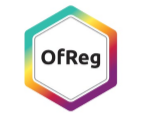News
OfReg Joins Regulatory Accelerator at UN Convention on Climate Change

It is intended that the 26th UN Climate Change Conference of the Parties (COP26) hosted in Glasgow, UK in November this year, will be a key moment in the global effort against climate change.
OfReg has accepted an invitation from Ofgem, UK’s Energy Regulator, to join the Global Regulatory Accelerator for Energy Transition, which will enhance knowledge sharing between energy regulators on the common challenges posed by the fast pace of decarbonisation needed to meet climate change goals.
Ofgem took advantage of the opportunity to increase international action on climate change, and invited the Cayman Islands, and other energy regulators across the globe to join this initiative. The objective is to move rapidly to decarbonise our energy systems across the globe. The Accelerator will be launched at COP26 on 3rd November 2021.
OfReg as regulator, has the principal role and function of translating the goals of the National Energy Policy (NEP) into reality: in particular, by ensuring efficient and timely electricity generation and transmission planning and investments, design of energy programmes, as well as ensuring the energy system is operated at economic cost to consumers.
A key function of the Accelerator for energy regulators would be to work alongside or in partnership with each other, leveraging the global diversity of regulatory skills, knowledge, and expertise in a meaningful way that bodes well for collective efforts to overcome the barriers to transition our energy systems from fossil fuels to green technology energy sources. The Accelerator will facilitate thought leadership, knowledge sharing, analysis & research, and technical assistance to regulators.
OfReg CEO, Mr Malike Cummings said: We are optimistic that the Regulatory Accelerator will provide OfReg and the Cayman Islands, the opportunity to leverage the expertise, experiences, and networking with fellow regulators across the globe, in this concerted effort to address the existential threat of Global warming; and in particular, to help the Cayman Islands accelerate the adoption of renewable technologies to attain the aspirational goal of 70% by the year 2037.












